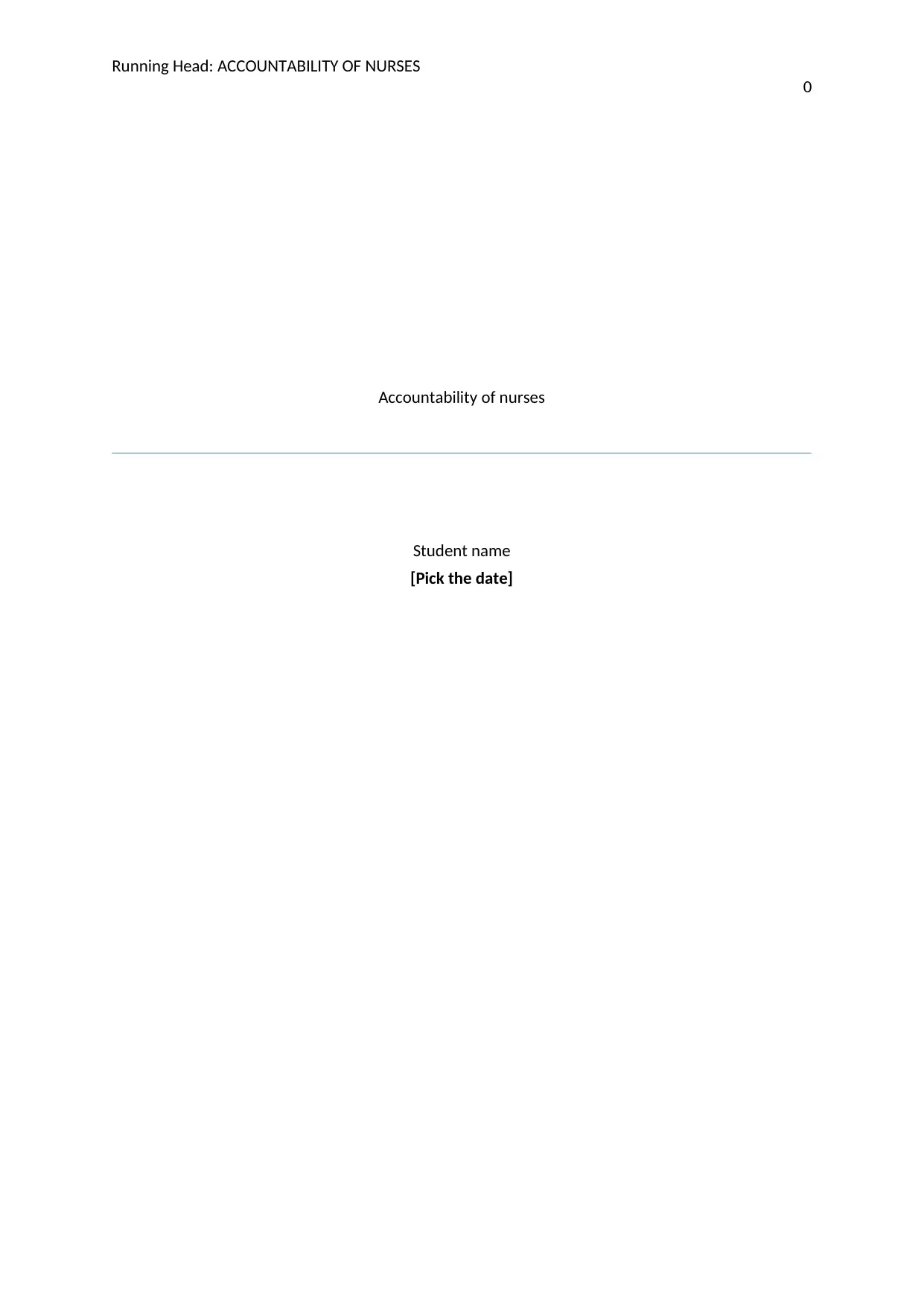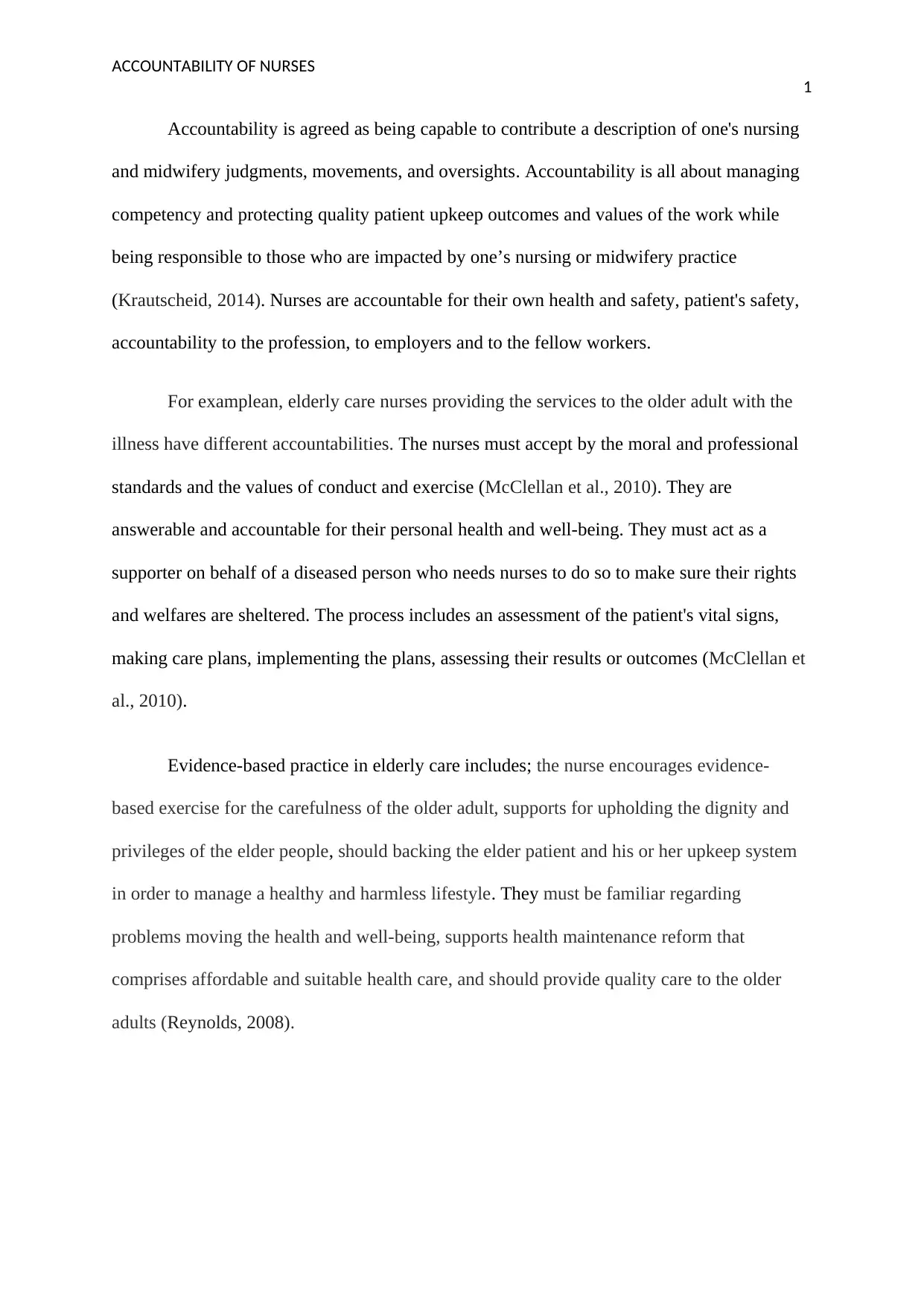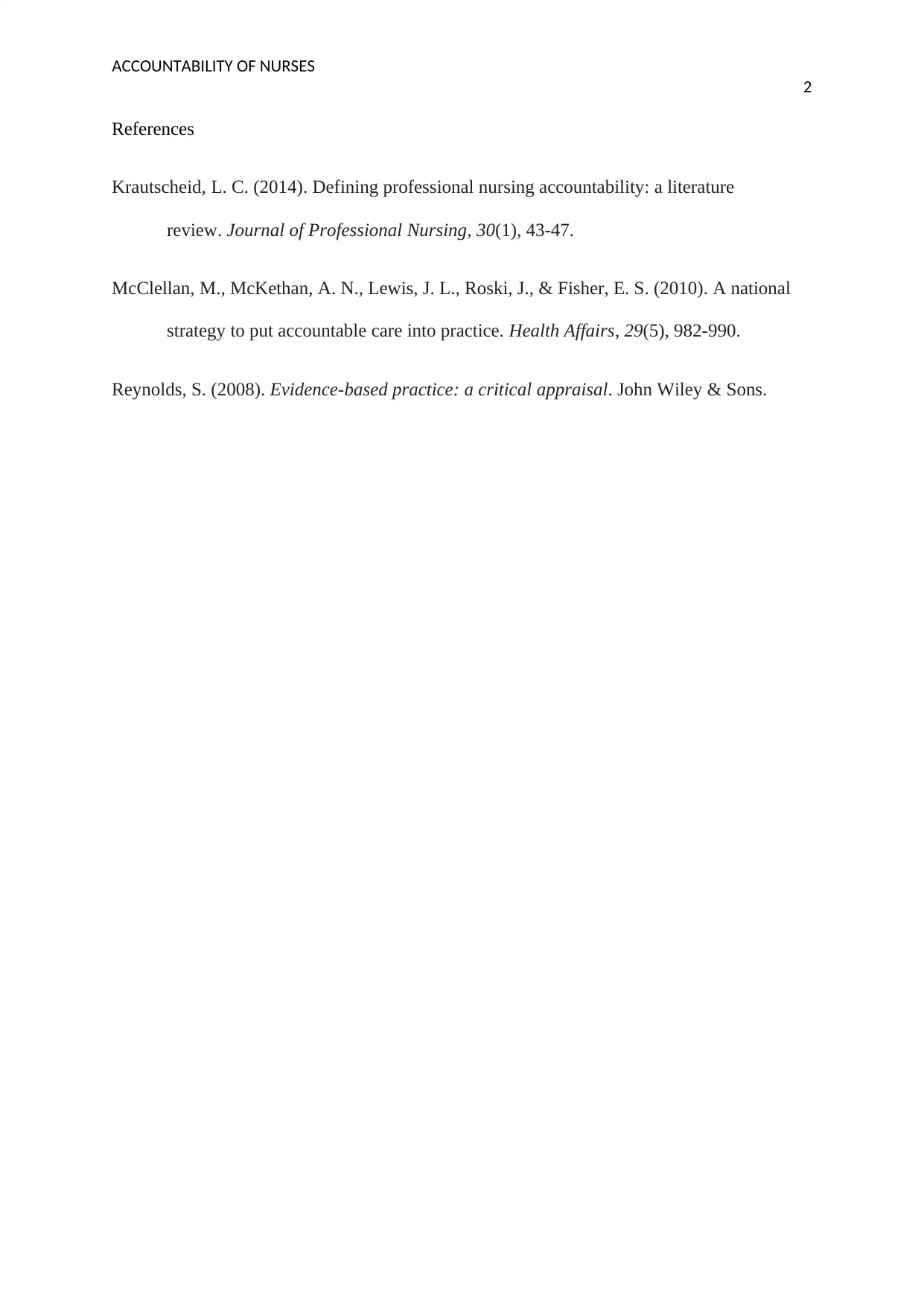Accountability of Nurses: Responsibilities and Ethical Care
VerifiedAdded on 2023/04/26
|3
|420
|433
Essay
AI Summary
This essay defines accountability in nursing as the ability to justify nursing judgments, actions, and omissions, emphasizing its role in managing competency and ensuring quality patient care. Nurses are accountable for their health and safety, patient safety, and their obligations to the profession, employers, and colleagues. The essay highlights the specific accountabilities of elderly care nurses, including adherence to moral and professional standards, advocating for patient rights, and implementing evidence-based practices. These practices include assessing vital signs, creating care plans, and promoting the dignity and well-being of older adults. The essay also underscores the importance of nurses staying informed about health issues, supporting healthcare reform, and providing quality care to older adults.
1 out of 3









![[object Object]](/_next/static/media/star-bottom.7253800d.svg)